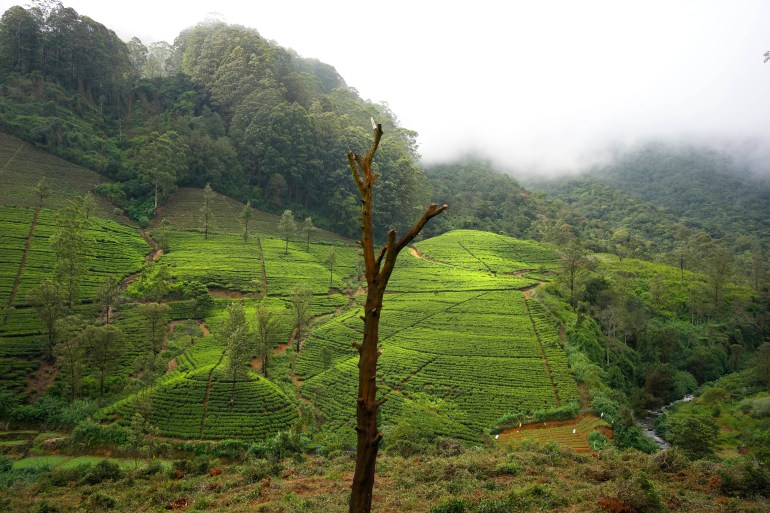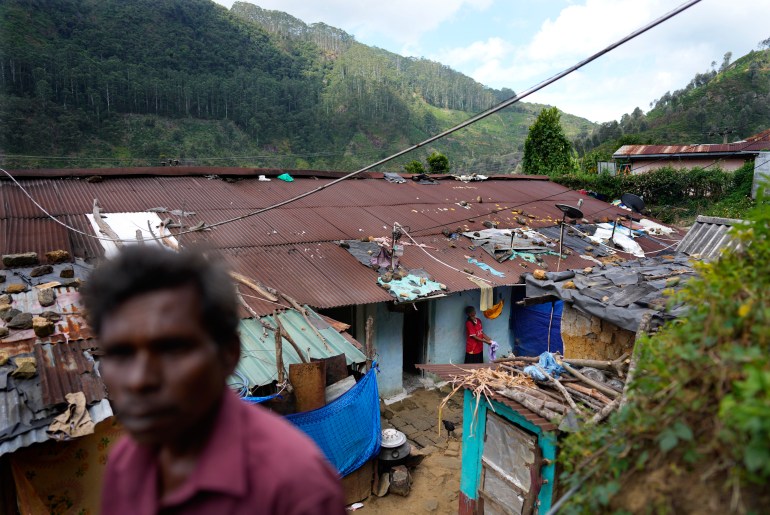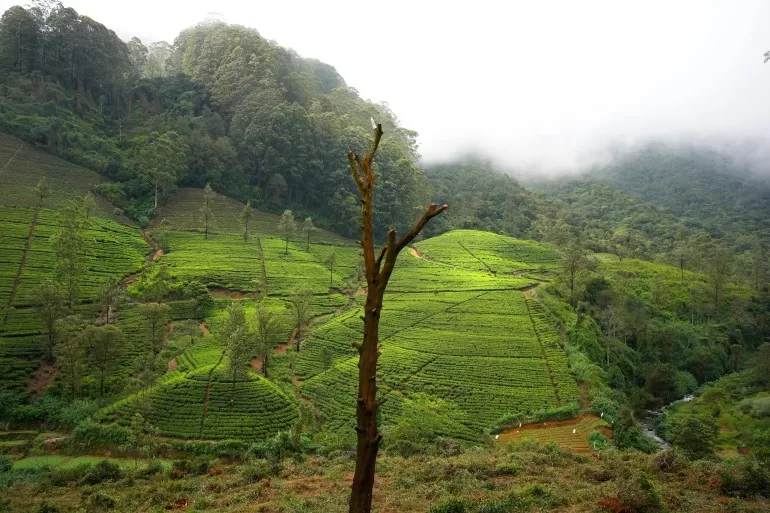Whoever Sri Lanka’s next president is, Muthuthevarkittan Manohari isn’t expecting much to change in her daily struggle to feed the four children and elderly mother with whom she lives in a dilapidated room in a tea estate.
Both leading candidates in Saturday’s presidential election are promising to give land to the country’s hundreds of thousands of tea estate workers, but Manohari says she’s heard it all before. The workers are a long-marginalised group who frequently live in dire poverty – but they can swing elections by voting as a bloc.
Mahohari and her family are descendants of Indian indentured labourers who were brought in by the British during colonial rule to work on the estates that grew first coffee, and later tea and rubber. Those crops are still Sri Lanka’s leading foreign exchange earners.

For 200 years, the community has lived on the margins of Sri Lankan society. Soon after the country became independent in 1948, the new government stripped them of citizenship and voting rights. An estimated 400,000 people were deported to India under an agreement with the neighbouring country, separating many families.
The community fought for its rights, accumulating wins until it achieved full recognition as citizens in 2003.
There are about 1.5 million descendants of such labourers living in Sri Lanka today, including about 3.5 percent of the electorate, and some 470,000 people still live on the tea estates. The community has the highest levels of poverty, malnutrition, anemia among women and alcoholism in the country, and some of the lowest levels of education.
Despite speaking the Tamil language, they’re treated as a distinct group from the island’s indigenous Tamils, who live mostly in the north and east. Still, they suffered during the 26-year civil war between government forces and Tamil Tiger separatists. The workers and their descendants faced mob violence, arrests and imprisonment because of their ethnicity.

Most of the workers live in crowded dwellings called “line houses”, owned by companies. Tomoya Obokata, a United Nations special rapporteur on contemporary forms of slavery, said after a visit in 2022 that five to 10 people frequently share a single 10-by-12-foot (3.05-by-3.6m) room, often without windows, a proper kitchen, running water or electricity. Several families frequently share a single basic latrine.
There are no proper medical facilities on the estates, and the sick are attended to by assistants who do not have medical degrees.
“These substandard living conditions, combined with the harsh working conditions, represent clear indicators of forced labour and may also amount to serfdom in some instances,” Obokata wrote in a report to the UN high commissioner for human rights.
The government has made some efforts to improve conditions for the workers, but years of an economic crisis and the resistance of powerful companies have blunted progress.
In this election, President Ranil Wickremesinghe has promised to give the “line houses” and the land they stand on to the people who live in them and help develop them into villages. The main opposition candidate, Sajith Premadasa, has promised to break up the estates and distribute the land to the workers as small holdings.
Manohari says she’s not holding out hope. She’s more concerned about what will happen to her 16-year-old son after he was forced to drop out of school due to a lack of funds.
“The union leaders come every time promising us houses and land and I would like to have them,” she said. “But they never happen as promised.”
